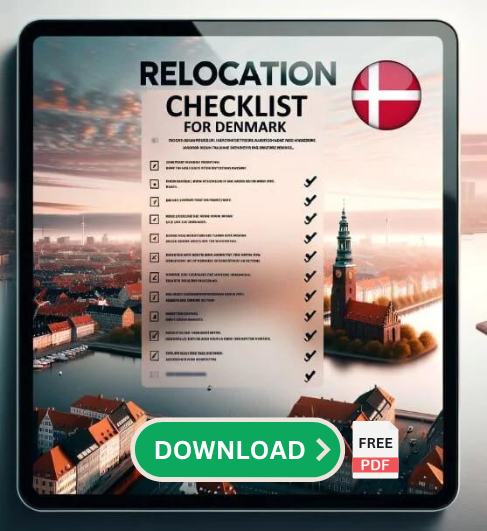The multi-party system has ensured that the Danish political landscape is both diverse and representative, giving various sections of society a voice in the country's governance. From liberal to conservative, green to social democrat, Denmark's political parties each bring unique perspectives and solutions to the table, addressing the myriad concerns and needs of its citizens.
As we delve into the significant political parties in Denmark, it's essential to understand that each has played a unique role in shaping the country's policies, values, and future directions.
Key Takeaways
- Denmark's political landscape is diverse, spanning from far-left to far-right ideologies.
- Each party, whether old or new, has significantly shaped the country's policies and discourse.
- Environmental sustainability, economic freedom, social welfare, and cultural preservation are recurring themes across parties.
- Many parties have evolved over time, adapting to the changing needs and aspirations of Danish society.

Venstre (The Liberal Party)
| Aspect | Details |
| Founded | 1870 |
| Ideology | Liberalism, Agrarianism |
| Core Tenets | Free market economy, rural interests, individual rights, pro-EU stance |
| Historical Role | One of Denmark's oldest parties, pivotal in shaping modern-day Denmark |
History
Founded in 1870, Venstre, often referred to as "The Liberal Party," has its roots in Denmark's agricultural movements, primarily representing the interests of the country's farmers.
The party's name, "Venstre," translates to "Left" in English, a nod to its origins as a left-wing opposition to the conservative and monarchical tendencies of the 19th century. Over the years, however, the party shifted more towards center-right positions, especially in the realms of economic and fiscal policy.
During its early years, Venstre played a pivotal role in the transition of Denmark from an absolute monarchy to a constitutional monarchy, advocating for more democratic institutions and broader representation.
Ideology
Venstre primarily champions liberal values, which emphasize individual freedoms, a market economy, and limited government intervention. Their liberal ideology often translates into policies that support entrepreneurship, deregulation, and fiscal responsibility. Additionally, Venstre holds a favorable stance towards the European Union and often advocates for international cooperation on various fronts.
While their economic policies lean towards the right, Venstre has showcased moderate positions on several social issues. This balanced approach has made them a central force in Danish politics, capable of collaborating with a range of other parties when the need arises.
Significance
Venstre's significance in Danish politics is undeniable. The party has led or been a part of several government coalitions throughout Denmark's history.
Their influence has been especially pronounced in shaping the country's economic policies, pushing for free trade, tax reforms, and the strengthening of the private sector. Moreover, Venstre's leadership has often been instrumental in forging international alliances, ensuring Denmark's active participation in global matters.
Socialdemokratiet (The Social Democrats)
History
Established in 1871, just a year after Venstre, the Socialdemokratiet, or The Social Democrats, emerged as a response to the growing industrialization of Denmark. Representing the burgeoning urban working class, the party was initially inspired by Marxist principles.
However, over time, it transitioned to a more moderate form of social democracy, shedding many of its revolutionary ideologies in favor of reformist stances.
The Social Democrats played a defining role in the creation of Denmark's renowned welfare state during the 20th century. Their initiatives in the fields of health care, education, and social services have left lasting imprints on Danish society, ensuring a high quality of life for its citizens.
Ideology
The Social Democrats firmly believe in the principles of social democracy, which encompass a commitment to social justice, equality, and the well-being of all citizens. Their ideology merges the ideals of a capitalist market economy with those of a welfare state, ensuring both economic growth and social protection for the vulnerable.
Key tenets of their ideology include:
- Progressive taxation to fund social programs
- Strengthening of workers' rights and labor unions
- Promoting gender equality and minority rights
- Environmental sustainability and climate action
While they maintain a positive view of the free market, the Social Democrats believe in state intervention to address market failures and to ensure that the benefits of economic growth are equitably distributed.
Significance
The Social Democrats' influence in Denmark is profound. They have been the largest party in the Folketing, Denmark's parliament, for extended periods and have headed numerous government coalitions.
Their leadership has been instrumental in building and maintaining Denmark's welfare model, which has become a benchmark for many countries worldwide.
Dansk Folkeparti (Danish People's Party)
History
Established in 1995, the Dansk Folkeparti, or Danish People's Party (DPP), was founded by Pia Kjærsgaard and a group of other politicians who split from the Fremskridtspartiet (Progress Party). From its inception, the DPP established itself as a party focusing on national identity, strong welfare policies, and a critical view on immigration.
Within a short span of time, the DPP gained significant traction in Danish politics, particularly because of its emphasis on preserving Danish heritage and its concerns regarding immigration and integration.
Ideology
The Danish People's Party combines national conservatism with a strong commitment to the welfare state. Some of the core tenets of its ideology include:
- Preservation of Danish culture and national identity
- A restrictive approach to immigration, with an emphasis on the assimilation of immigrants
- Advocacy for a robust welfare system, including support for the elderly and the vulnerable
- Skepticism towards the European Union, advocating for national sovereignty over certain issues
While the party's economic policies tend to align with those of the traditional left, especially regarding welfare, its socio-cultural stances, particularly on issues of national identity and immigration, position it on the conservative right.
Significance
Though a relatively newer entrant in the political arena compared to some of Denmark's other major parties, the DPP's influence has been significant. Throughout the 2000s and 2010s, the party was often considered the 'kingmaker' in the Danish parliament, wielding considerable power despite not always being part of the governing coalition.
The DPP's positions on immigration, in particular, have driven national conversations and influenced policy decisions in this area. Their emphasis on Danish identity and skepticism towards certain aspects of globalization has resonated with a segment of the Danish populace, ensuring their continued relevance in the political discourse.
Det Radikale Venstre (The Danish Social-Liberal Party)
History
Founded in 1905, Det Radikale Venstre, commonly referred to as the Danish Social-Liberal Party originated from a split within the Liberal Party (Venstre). The faction that formed the Social-Liberal Party was driven by urban and intellectual circles that sought to address the rising socio-economic challenges of the time, such as labor rights and social reforms.
Over the years, the party has been influential in various coalition governments, playing a balancing role and pushing for progressive social reforms. Historically, it was this party that championed landmark policies, such as introducing the eight-hour working day in Denmark.
Ideology
Det Radikale Venstre embodies social-liberal values, striving to strike a balance between individual freedoms and collective welfare. Their core tenets emphasize:
- Economic policies that merge free market principles with social responsibility
- Ensuring social rights and equality, including gender equality and minority rights
- A strong commitment to education and cultural enrichment
- Environmental sustainability, advocating for progressive climate policies
- A positive stance on the European Union and international cooperation
While they economically believe in the merits of the market economy, they also underscore the importance of state intervention to ensure fairness, equality, and broad-based prosperity.
Significance
The Danish Social-Liberal Party has, on multiple occasions, played the role of a coalition partner or a supporting faction, ensuring the passage of progressive legislation in the Folketing. Their centrality on the political spectrum often makes them a desirable partner for both left-leaning and right-leaning parties, granting them considerable influence in shaping policy directions.
Moreover, their stances on education, culture, and international affairs have made them a vital voice in discussions about Denmark's future and its role on the global stage. As champions of progressive values within a market economy framework, Det Radikale Venstre remains a significant and often pivotal player in the evolving narrative of Danish politics.
Enhedslisten (The Red-Green Alliance)
History
Established in 1989, Enhedslisten, or The Red-Green Alliance, was born from a merger of several left-wing parties and movements. These groups, ranging from socialists to communists and revolutionary Marxists, came together with the shared goal of creating a unified leftist voice in the Danish political landscape.
From its inception, Enhedslisten sought to provide an alternative to the more moderate left-leaning parties, advocating for radical transformations in the realms of economy, environment, and social justice. Over the years, they transitioned from a fringe party to a notable force in the Danish parliament, making headway, especially in the 2010s.
Ideology
The Red-Green Alliance is rooted deeply in far-left socialism, complemented by strong environmentalist views. Their core beliefs revolve around:
- Wealth redistribution through progressive taxation and the reformation of capitalist structures
- Comprehensive welfare policies ensuring universal access to healthcare, education, and social services
- Workers' rights, championing the cause of labor unions, and fighting against exploitative practices
- Radical environmental policies aimed at curbing climate change and promoting sustainability
- International solidarity, often advocating for causes such as global justice and anti-imperialism
Though the party's roots lie in revolutionary ideologies, its modern manifestation leans more towards democratic socialism and green politics, aiming for transformation within the existing democratic framework.
Significance
The rise of Enhedslisten in the 21st century has brought a pronounced leftward tilt to Danish politics, especially concerning environmental policies and social welfare. Their presence has ensured that issues such as climate action, wealth inequality, and corporate responsibility remain at the forefront of the national discourse.
While traditionally not a part of governing coalitions, their role in the Folketing often involves pushing other left-leaning parties towards more progressive stances. Given the growing global concerns around climate change and socio-economic disparities, Enhedslisten's voice and influence in Danish politics is not only pertinent but also ever-growing.
Konservative Folkeparti (The Conservative People's Party)
History
The Konservative Folkeparti, known in English as The Conservative People's Party, was established in 1915. Emerging from a desire to represent conservative urban interests, the party differentiated itself from the rural-focused Liberal Party (Venstre).
Over the last century, the Conservatives have been an integral part of Danish politics, often forming alliances with other center-right parties and actively participating in several government coalitions.
Throughout its history, the party has advocated for the preservation of traditional values while also embracing necessary reforms, ensuring its continued relevance in an evolving political landscape.
Ideology
At its core, The Conservative People's Party upholds values of conservatism, fused with elements of economic liberalism. The fundamental pillars of their ideology include:
- Preservation and promotion of Danish cultural and national heritage
- A market-oriented economic approach, emphasizing deregulation, tax cuts, and business-friendly policies
- A commitment to a strong defense and law-and-order stance
- Prudent welfare policies, balancing social care with fiscal responsibility
- A moderate view on environmental issues, often seeking a balance between economic growth and sustainability
While their emphasis on traditional values positions them on the right of the political spectrum, the party often adopts pragmatic stances on social issues, reflecting the broader consensus of Danish society.
Significance
The Conservative People's Party has been a mainstay in Danish politics for over a century, with its influence evident in various policy domains, especially in the areas of economy, defense, and cultural preservation. As part of several coalition governments, the party has left an indelible mark on Danish fiscal policies, defense strategies, and institutional reforms.
Furthermore, their ability to strike a balance between traditional conservative values and modern pragmatism has granted them a consistent voter base. As defenders of Danish heritage and proponents of a free-market economy, the Konservative Folkeparti continues to play a crucial role in shaping Denmark's political and societal trajectory.
Liberal Alliance
History
Liberal Alliance was established in 2007 as a breakaway faction from the Danish Social Liberal Party and the Conservative People's Party. Originally founded as "Ny Alliance" (New Alliance), the party aimed to be a centrist alternative, ensuring a majority that would keep the Danish People's Party's influence in check. However, by 2008, the party pivoted more towards classical liberal stances, subsequently adopting the name "Liberal Alliance."
In the years following its formation, the party witnessed steady growth in support, reaching its peak influence in the 2010s, during which it positioned itself as a clear advocate for free-market reforms and minimal state intervention.
Ideology
Liberal Alliance is firmly rooted in classical liberalism. The cornerstone principles of their ideology include:
- Strong advocacy for individual freedoms and rights
- Emphasis on a free-market economy with minimal state interference
- Tax reductions and simplifications to spur economic growth
- A belief in personal responsibility and limiting the scope of the welfare state
- Promotion of free trade and international cooperation
Although their economic views are distinctly right-leaning, the party holds liberal views on many social issues, advocating for individual liberties and choices across various aspects of life.
Significance
Although relatively new to the Danish political scene, the Liberal Alliance quickly established itself as a distinct voice, especially in debates surrounding economic policies. The party's influence was notably felt during the mid-2010s when it championed a range of reforms aimed at reducing taxes, deregulating industries, and promoting entrepreneurial initiatives.
Their positions often serve as a counterpoint to Denmark's traditionally robust welfare system, introducing a discourse on the merits and demerits of extensive state intervention. While their influence has fluctuated over the years, the Liberal Alliance's presence ensures a continued debate on the balance between individual freedoms and collective responsibility in Danish society.
Alternativet (The Alternative)
History
Founded in 2013 by Uffe Elbæk, a former Minister for Culture from the Social Liberal Party, Alternativet, or The Alternative, emerged as a response to growing concerns over environmental challenges and a perceived lack of ambition in traditional politics regarding sustainability. The party positioned itself as not just a political entity but also a movement, emphasizing participatory democracy, creativity, and holistic solutions.
From its inception, Alternativet gained attention for its unconventional approach to politics, adopting open debates and workshops as part of its policy-making process and emphasizing the role of citizen engagement.
Ideology
The Alternative is characterized by its green political stance, combined with a progressive socio-economic outlook. The central tenets of its ideology are:
- A profound commitment to environmental sustainability, championing aggressive measures to combat climate change
- Promotion of a new economic paradigm that goes beyond GDP growth, emphasizing well-being, quality of life, and ecological balance
- Encouraging participatory democracy, where citizens play a more direct role in decision-making processes
- Advocacy for a diverse and inclusive society, promoting the rights of minorities and marginalized groups
- Fostering creativity and innovation in all aspects of society, from education to business
While environmental concerns are at the forefront of their agenda, the party also stresses the interconnectedness of various societal challenges and promotes holistic solutions.
Significance
Though a newer entrant in Danish politics, The Alternative has already made a mark, especially in the realm of environmental and sustainability debates. The party's success in the 2015 general elections, where it secured nearly 5% of the votes, demonstrated a growing appetite for its forward-thinking and green-focused policies.
Moreover, by pushing for greater citizen involvement and adopting open and transparent policy-making practices, Alternativet has introduced a fresh perspective to Danish politics. Their presence ensures that discussions around sustainability, creativity, and inclusive democracy remain central to the country's political discourse.






